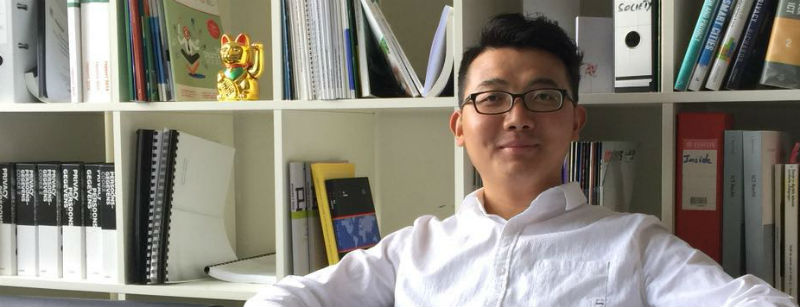Feng Cong is a PhD candidate at University of Leuven in Belgium. He graduated from the China-EU School of Law at the China University of Political Science and Law in 2015. In this interview, he explains what the ideal PhD candidate is like, how to successfully apply for a PhD programme and how to enter the workforce with a PhD.

What personal skills does the ideal PhD candidate have?
You should really take an interest in your topic. You keep researching, reading, writing, discussing and modifying your papers every day for three to four years to obtain your PhD degree and you will need a good portion of energy and motivation for that. Otherwise you will either feel quickly bored and tired, or you will need a lot more discipline than you will need anyway to keep going with your work as scheduled.
You do not have to worry about your basic research abilities as a graduate of the China-EU School of Law – if you know how to approach a legal problem, to find literatureand to fulfill the requirements of academic writing in English you will be fine.
As for the graduation requirements,some universities require only your thesis, others, such as University of Leuven,require one paper to be published on an international journal.
What’s your opinion on pursuing a the doctor’s degree after a few years of work?
If someone who already practiced law takes the opportunity to specialize in a new, and more promising field of law by completing a PhD programme, I consider this positive. However, as graduates from the China-EU School of Law, usually our starting point in the job market is quite promising anyway and the upgrade of chances won’t be too drastically. Moreover, you run the risk of losing touch to your previous working experience since our society is changing so rapidly, you will have difficulties to maintain your living standards since you won’t become rich with a PhD scholarship. Yet, if you want to slightly change your professional track and breathe some new air, But if you want to escape your old field of work and eye at a completely new career track, I’d surely recommend it.

Is it difficult to get into a PhD programme?
There are basic language requirements you need to meet,usually universities ask for the IELTS or TOEFL test.It is not mandatory to have already published some papers but definitely abonus if you did.I recommend to firstly choose your genereal interest of research and then select a matching university and supervisor.Then you prepare your application, including your English test result,a CV,your papers and most importantly,your research proposal, before you contact a possible supervisor.At University of Leuven, after admission, it took me six to eight months to refine the research plan.On the positive side, I profitted a lot from having studied EU law at the China-EU School of Law.Some phD candidates change their subject, or even the field, during that process to improve their work. I’d recommend to contact at least two supervisors in one college or university because otherwise, you may be considered as aimless. As soon as the accepts, the rest of the procedure is mostly formality.Some supervisors point out the problems in your research plan or recommend other appropriate supervisors even though they are not willing to accept you– that can also be helpful.
Whatcareer opportunitiesare there for a PhD in law?
Most of my fellow PhD candidates aim at a career in academia, so they applyat colleges and universities for employment aftertheir PhD.Yet, the competitionin academiais quite fierce.In enterprises, doctors won’t be employed either if undergraduates or postgraduates are competent for the job position, because their salaries are lower and they cost a firm less many. Vacancies for researchers at government authorities and research institutes are the main choices for doctors’ employment direction.
Authors: Wu Dongxin (2017 double master’s student of CESL)
Photograph: Feng Cong(2015 CESL graduate)

